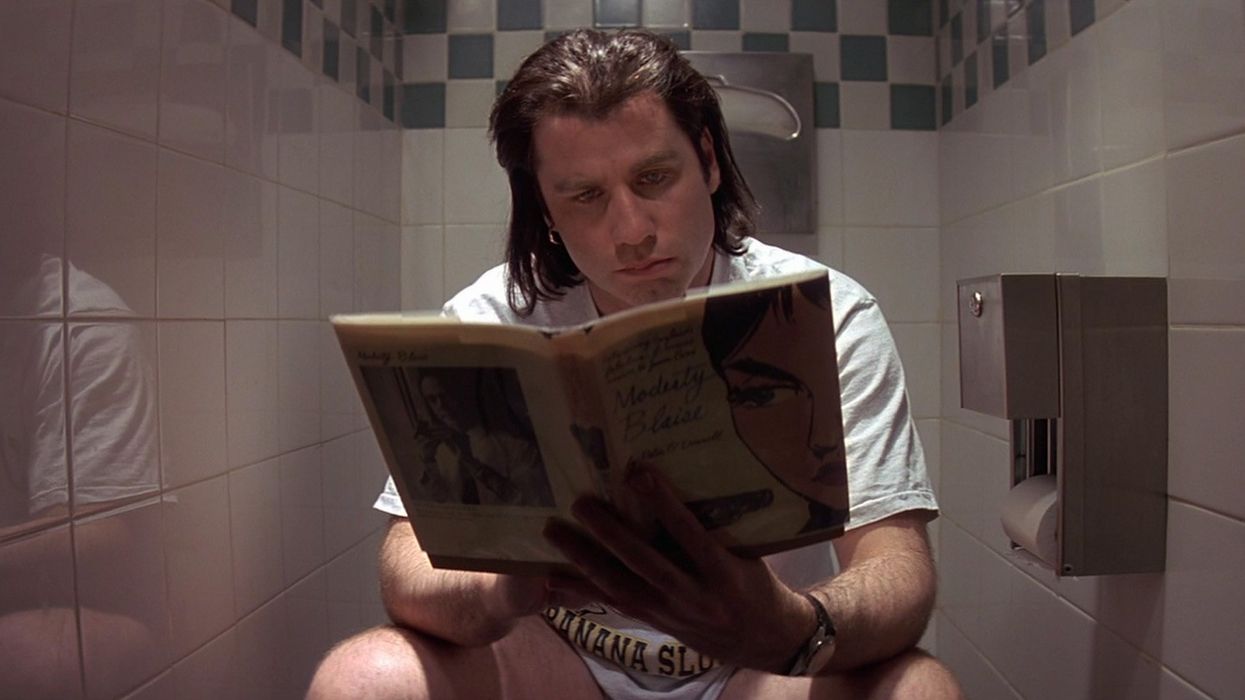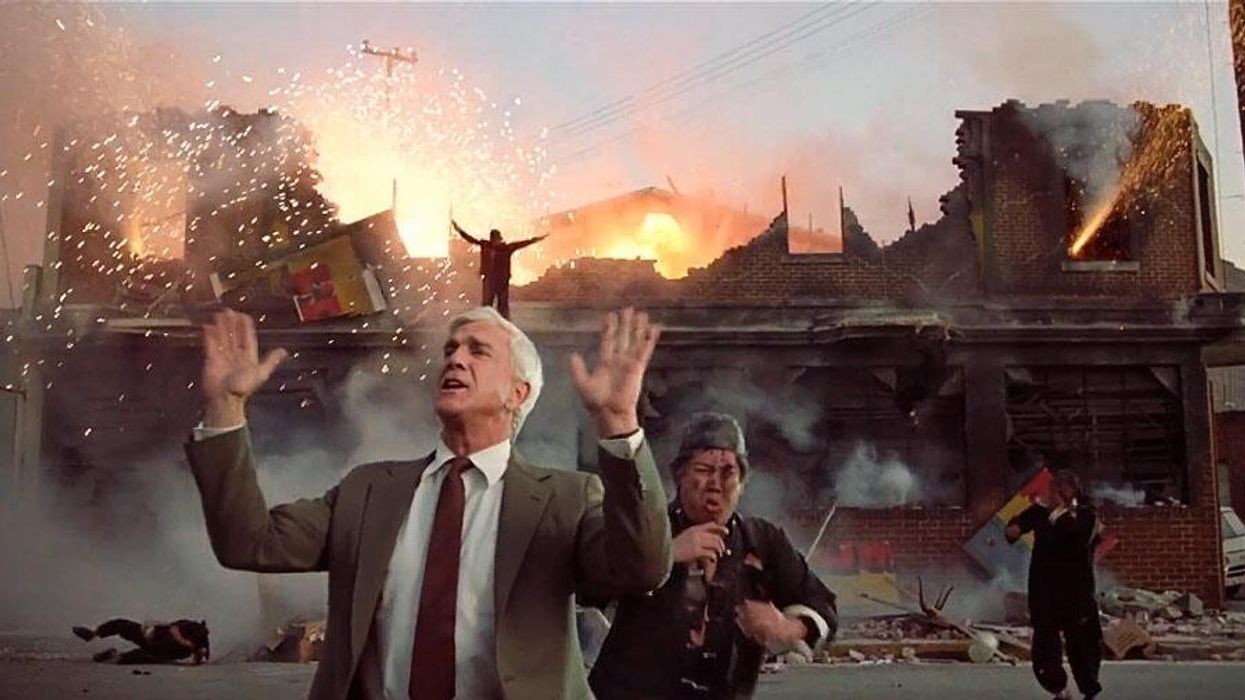Why the Bathroom is the Most Dangerous Place in Quentin Tarantino's 'Pulp Fiction'
In Quentin Tarantino films, namely Pulp Fiction, death is a toilet.

Symbolism in cinema can tell you a lot about a film, from its themes to its underlying message. Being an ardent student of film, Quentin Tarantino knows how to use visual storytelling to do just that, even if any resulting symbolism is unintentional. In this video essay, ScreenPrism highlights some of the metaphors he uses in Pulp Fiction, particularly bathrooms and toilets, to explore the director's affinity for juxtaposing the mundane and the extreme.
They always say a thing isn't a symbol until it shows up three times, and in Pulp Fiction well over three key moments occur in bathrooms. You've got the guy hiding in the bathroom with a gun. You've got Mia snorting coke in the bathroom. You've got Butch and Fabienne taking showers. And Vincent Vega is basically taking shits throughout the entire movie. So, how are these all key moments?
Well according to the video, all of these bathroom scenes precede major deaths in the film. The guy jumps out of the bathroom guns blazing, fails to hit either Vince or Jules, and instead gets pumped full of lead himself. (And then Marvin gets shot in the face later, which of course causes Jules to gain a conscience about his work.) Mia comes out of the bathroom, has a fun evening with Vince, returns home with him and while poking through his pockets finds heroin, overdoses, all while Vince is talking to himself in the bathroom mirror. And in all of the scenes in which Vince is taking shits, something bad happens shortly thereafter, including Pumpkin and Honey Bunny robbing the diner and his very own death.
So, there seems to be a pattern with all of these toilet scenes: toilet, death, toilet, death, toilet, death, etc. It looks as though Tarantino is trying to say something about mundanity (toilet) and extremism (death), especially considering their proximity to each other in the narrative, but what? ScreenPrism suggests that the bathrooms in Pulp Fiction represent the "ultimate isolation"—these are one of the only places where characters (and ourselves) are really alone, and death represents the "ultimate loneliness." (I know what you're thinking, Butch was alone in the locker room, but locker rooms are just big bathrooms with lockers, okay?)
Whether or not it was Tarantino's intention to including this symbolism in his film, it still makes you think about how much more powerful and complex you can make your own stories by adding a bit of your own.
Source: ScreenPrism












